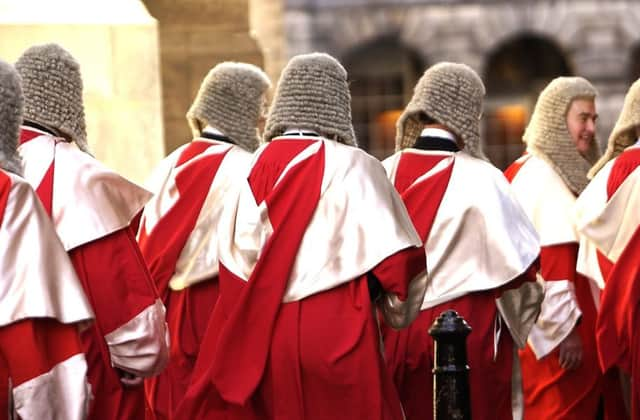Leader comment: Justice must be seen to be even-handed


According to the man used to presiding over the most complex of cases, such a move would discourage leading lawyers from joining the bench.
Lord Carloway yesterday told MSPs the move – which would require judges to declare their financial interests – would be “detrimental” to justice in Scotland, with the top courts already facing problems recruiting judges to serve on their benches.
Advertisement
Hide AdAdvertisement
Hide AdThe register has been proposed in a petition by Scots law blogger and legal rights campaigner Peter Cherbi.
But Lord Carloway has insisted there is no need for a register of interests until it is “demonstrated that there is corruption” among Scotland’s judges.
Unfortunately, his position reinforces one of the oldest stereotypes in the book about the judiciary – that it is among the most influential branches of the old boys network.
Scotland’s judges are among the highest paid in Europe, with those operating in the High Court on around £180,000 a year.
Such salaries should be sufficient to attract the brightest and best, without them having to worry about outside interests.
Our politicians are required to register their interests and judges should be no different.
Indeed jurors are often replaced if it is considered they are likely to be inhibited by personal interests.
It makes no sense that the most powerful person in any court room should be treated differently.
Advertisement
Hide AdAdvertisement
Hide AdIt is likely there are judges who have ruled on cases in the past in which they themselves had a connection or vested interest.
That is not to say such interests would have impinged on their decision-making in any way.
But public perception is key here and justice cannot be seen to be done without transparency and accountability at the highest level.
Lord Carloway maintains the introduction of a register of interests would put many off becoming a judge.
But the move could have the opposite effect, encouraging a new class of candidate to make the step up, in the process helping to make the judiciary more representative of the population it is there to serve.